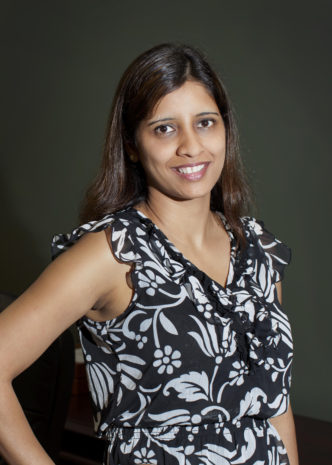When This Hospital Needed More Doctors, An Indian-Born Cardiologist Stepped Up to Help
Date: June 30, 2016

Dr. Ashu Dhanjal, an invasive cardiologist originally from India, is one of the several foreign-born doctors that in recent years have become an important part of the healthcare infrastructure in mountainous, rural West Virginia. When Dhanjal arrived in 2013, the Logan Regional Medical Center, where she was based, had just one cardiologist on staff. Many of the patients in the area were traveling to Charleston or Huntington for their care. “My colleague had built up a large practice, but there was so much need here, one person couldn’t take care of it all,” Dhanjal says. That was especially true given the unique health challenges Logan and the surrounding area face. Many young people left the region when coal industry jobs dried up, leaving a largely elderly population. The high incidence of conditions like diabetes, high blood pressure, and black lung, as well as financial challenges, hinders patient care. “I was initially seeing so many patients here who had a heart attacks four, five, or even 10 years ago, got treated in an emergency room, and then never had any follow-up care,” Dhanjal says. “It was just too far and too expensive for them to drive.”
Once Dhanjal began working in the hospital full time, the number of heart attack patients being transferred from emergency rooms to cardiology practices in bigger cities decreased dramatically. She and her partner also helped the hospital grow its cardiology services to a point that most major procedures can now be done in house. “Now the community feels comfortable that, when they come to our emergency room with a heart issue, they will be taken care of—and the care will be really good,” Dhanjal says. She’s also made promoting a healthy lifestyle a real focus of her work, trying to prevent heart problems before they start. “You get really attached to the Appalachian community,” Dhanjal says, “And I want to do everything I can to help.”
Our physicians are from everywhere—from Lebanon to Nigeria to Egypt. We really have the United Nations here now.
Dhanjal thinks she will remain in West Virginia for the long term and has plans to become an American citizen. “I tell my daughter that the United States is a place where if you are willing to work hard and put in your best, the sky is truly the limit,” Dhanjal says. “That’s what really drew me here.” Like many foreign doctors in the United States, however, her path has been long. After practicing medicine for several years in India, she came to the United States in 2007 and essentially repeated six years of residency and fellowship training so she could practice cardiology in the States. After all that work, Dhanjal was almost not allowed to remain here: She had done her residency using a J-1 visa, which requires holders to return home for at least two years after completing training.
Dhanjal, however, was able to take advantage of the Conrad 30 Waiver program, an initiative that allows doctors who trained on the J-1 visa to get out of the requirement that they return home, as long as they agree to practice in a medically underserved community for at least three years. In West Virginia, 27.8 percent of doctors went to medical school abroad—a share that puts the state in the top 10 in the country in terms of its reliance on foreign-educated doctors. Most years, West Virginia uses all of its Conrad 30 waivers. Dhanjal says she felt lucky that after finishing her residency she was able to get a waiver so she could keep practicing in the state. She says she wishes more such visas were available to doctors eager to contribute to American communities in need. The Conrad 30 Program, which must be reauthorized every few years, should also be made permanent.
Justin Turner, director of physician recruitment for the Logan Regional Medical Center in West Virginia, says doctors like Dhanjal are not alone. He says, in fact, it would be hard to imagine his hospital functioning without international doctors like Dhanjal on staff. Logan, which is based in a town of 1,200 people, often has trouble recruiting U.S.-born doctors unless they already have a tie to the local area or the Appalachian community more broadly. In the past several years, however, Turner has been able to bring in dozens of foreign-born doctors using the Conrad 30 State Waiver program. “Our physicians are from everywhere—from Lebanon to Nigeria to Egypt,” Turner says. “We really have the United Nations here now.”
